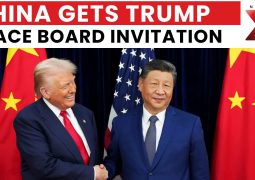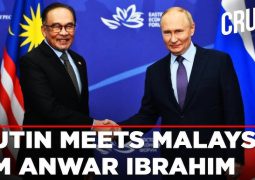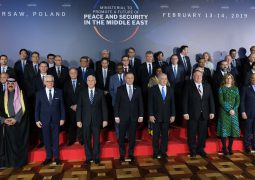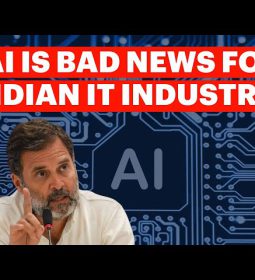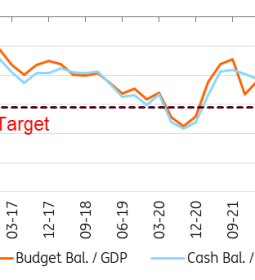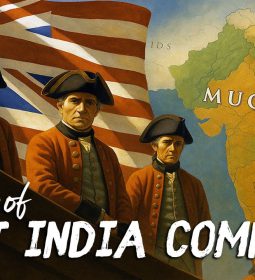Official Beiging: Anti-China hysteria could prove self-defeating for U.S.

“True nobility is being superior to your former self.” This famous quote from Ernest Hemingway might serve as a wake-up call and precious advice for politicians in Washington today.
Fervent anti-China rhetoric was highlighted by the so-called “China Week” in the U.S. Congress earlier this month. House of Representatives lawmakers oversaw the mass passage of 25 bills, targeting Chinese biotechnology, drones, electric vehicles, batteries and more.
It is quite obvious that these lawmakers have noticed the fact that China is catching up with or even overtaking the United States in certain fields, and as a result feel a heightened sense of anxiety. Unfortunately, in their desperate attempt to maintain “American superiority,” they have not tried anything concrete to turn America into a “better self,” but instead opted for relentless efforts to slow down and even stifle China’s progress.

Proposing anti-China bills and pushing for their passage seems to have become a popular trend in U.S. Congress in recent years. The numbers of China-related bills introduced by the 116th and 117th Congresses were both more than double that introduced by the 115th Congress. The breadth of these bills is also unprecedented, covering economy, trade and investment, politics, technology and security.
But can these legislative moves really work and serve their initiators’ purposes? Facts and realities have repeatedly provided a negative answer.

Take electric vehicles (EVs) as an example. A latest bill passed by the House of Representatives tightens rules limiting Chinese content in vehicles qualifying for U.S. EV tax credits, showing a clear intention to cut China from America’s EV supply chain. However, according to industry experts, China’s lead in EV batteries and some other technologies is so big that any attempt to build a China-free supply chain will have a cost “beyond the limits” and significantly slow down America’s auto industry upgrading and green transformation.
In fact, despite pressure and threats from politicians, Ford Motor and some other U.S. companies are seeking cooperation with China’s leading battery maker, CATL, on battery production in the United States.

Apart from inflicting harm on its own industries and economy, U.S. moves to erect barriers to trade and cooperation with China in an insensible or even hysterical manner, could also result in self-isolation.
Among the latest cluster of China-related legislation, the Biosecure Act aims to ban contracts with major Chinese biotechnology companies. However, U.S. researchers and executives believe that this law could hurt both the industry and scientific research, and warn that the United States also risks falling behind and being isolated from international cooperation in this field.
Amid rapid and drastic changes in the global economic and technological landscape, some U.S. industries and sectors, such as iron and steel, automobiles and new energy, really face tough challenges and are in dire need of assistance and support. But by always pointing the finger at China or resorting to trade protectionism and tech isolationism, politicians in Washington are not helping, but making things worse.

If such politicians are really taking China so seriously, they should take a serious look at the “secret recipe” of China’s success — a government dedicated to the pursuit of high-quality development based on reform and innovation, a huge and vibrant domestic market allowing enterprises to fully compete and grow strong, as well as an open attitude that attracts global capital and businesses, and facilitates win-win cooperation.
But can these politicians learn from China and effectively assist struggling U.S. industries? Do they have the motivation, determination and wisdom needed to achieve such progress? There is plenty of room for doubt, particularly in a period when the only bipartisan consensus on Capitol Hill is said to be the one targeting China as a threat.
After all, China has made it very clear that its innovation and modernization efforts are never aimed at defeating or supplanting the United States. China has also emphasized that it will not yield to any external pressure and relinquish its legitimate right to development. All this means that maneuvers like “China Week” will inevitably be exposed as no more than political stunts, which serve only to induce self-deceit and boost baseless fear-mongering.
So the time has probably come for these politicians to take heed of Hemingway’s words of wisdom, which means they should do what the American people truly need them to do — to focus on fixing America’s own problems, rather than look for external scapegoats to cover up their incompetence and inaction.
- Previous Vietnam in clash with China over assault on its fishermen in the disputed South China Sea
- Next Russian and China Navies held for the first time joint patrol in Arctics






